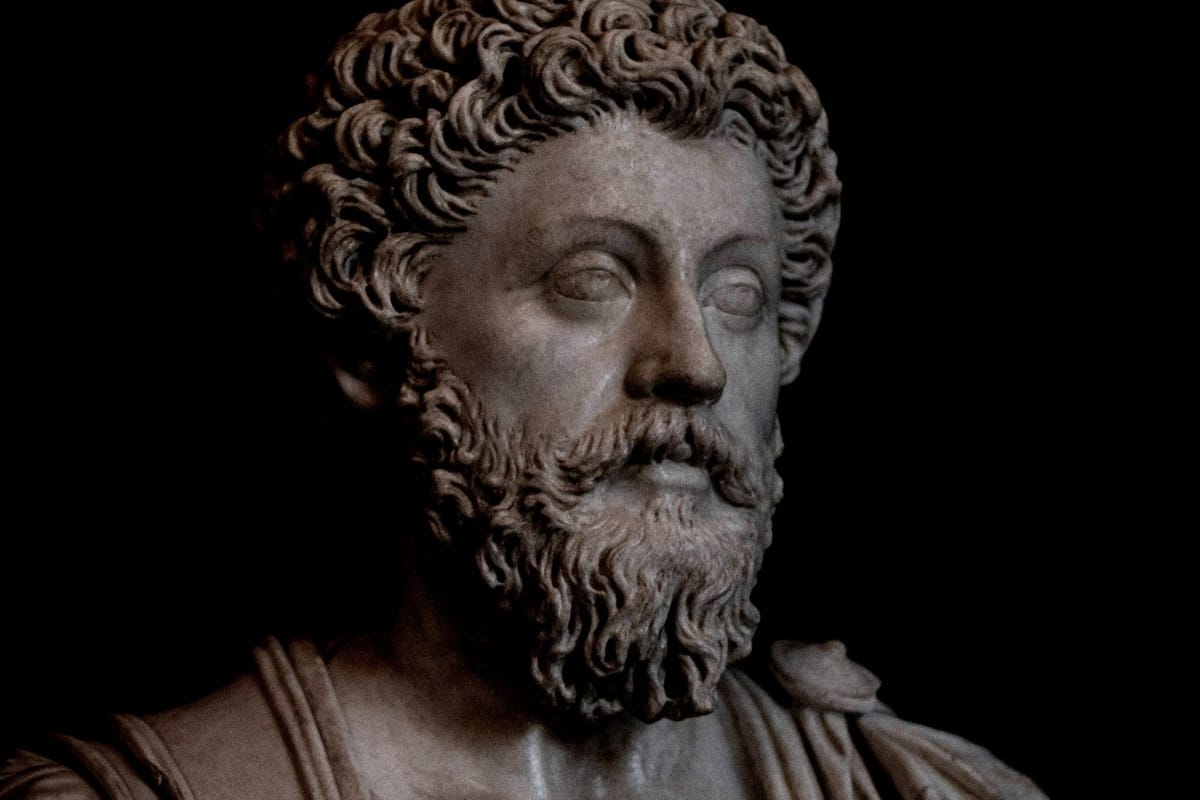What Marcus Aurelius’s Book 1 Taught Me About Living With Grace and Grit
Discover a heartfelt, modern-day review of Book 1 of Marcus Aurelius’s Meditations. Explore timeless lessons on gratitude, emotional maturity, and real leadership from the Roman emperor's personal reflections.

I didn’t expect much from a Roman emperor. Honestly, when I first picked up Meditations, I thought I was diving into some dusty old philosophy book that would either make me yawn or feel like I was back in a boring college lecture. But Book 1? That hit different.
It felt less like reading a Stoic philosophy text and more like peeking into someone’s gratitude journal. Someone powerful, someone thoughtful. Someone human. And that human was Marcus Aurelius—arguably one of the most powerful men in history—sitting quietly, writing down all the people who shaped his life.
And somehow, even from centuries away, he made me sit up and think about my own life.
The Power of Gratitude From a Roman Emperor
Let’s get one thing straight—Book 1 of Marcus Aurelius’s Meditations isn’t really philosophy in the traditional sense. It doesn’t hit you with heavy theories or intellectual jargon. It’s a list. A simple list of people Marcus admired and what he learned from them.
But what makes this list powerful is that it’s not sugar-coated. It’s raw. It’s honest. It’s grounded in real-life character traits. Marcus thanks his grandfather for teaching him not to get angry. He thanks his father figure for showing him what integrity looks like in the everyday hustle. He remembers teachers, mentors, even servants—people who gave him lessons in patience, humility, and resilience.
That’s what makes Book 1 relatable. Marcus didn’t just acknowledge kings and generals. He learned from the people around him and took time to reflect on how they helped shape him. In a world obsessed with taking credit, here was a guy giving it all away.
If this was written today, it would probably be a LinkedIn post going viral for being authentic and deeply human.
Book 1 of Meditations Isn’t About Stoicism—It’s About Humanity
If someone tells you Meditations is all about detachment and cold rational thought, they clearly haven’t read Book 1. This first chapter isn’t about suppressing emotions—it’s about channeling them into strength. It’s not about distancing yourself from life but engaging deeply, intentionally.
Marcus talks about how people showed him calmness in crisis, dignity in chaos, and compassion without weakness. These aren’t abstract ideals—they’re lived virtues. You see a leader not obsessed with control but inspired by character.
As I was reading, I kept thinking: when was the last time I sat down and acknowledged the people who quietly made me better?
That’s the kicker with this book. It’s not here to impress you—it’s here to make you reflect. If you’ve ever had a mentor who guided you without seeking applause, or a friend who told you the truth when you didn’t want to hear it, Book 1 will feel familiar.
And maybe that’s the point.
Book 1 of Meditations Is a Masterclass in Emotional Maturity
In today’s world, emotional maturity often gets mistaken for silence or passivity. But Marcus redefines it. He’s not saying, “don’t feel.” He’s saying, “learn to feel deeply, but stay steady.” That kind of clarity doesn’t come from motivational quotes—it comes from doing the hard inner work.
Book 1 is filled with little lessons wrapped in big emotions. And most of them come down to this: be the kind of person who adds peace to the room, not noise.
Marcus doesn’t talk about building empires or winning wars. He talks about not gossiping. About showing up on time. About keeping your promises. That’s emotional maturity. That’s the kind of leadership you don’t shout about—you show it through your behavior.
And if a Roman emperor could see that value back then, we sure as hell need to relearn it now.
Why Book 1 of Marcus Aurelius’s Meditations Still Matters Today
You could say Book 1 is outdated. I’d argue the opposite—it’s timeless. When you strip away the robes and palaces, Marcus Aurelius was a man trying to live well. Trying to be decent. Trying to make sense of a messy world with discipline and heart.
That’s what makes this book such a rare gem. It doesn’t give you answers—it gives you perspective. And in a time where everyone's chasing hacks and dopamine, Marcus reminds us that real strength comes from slowing down and staying centered.
You don’t need to be a Stoic philosopher to understand Book 1. You just need to be someone who’s been shaped by others—and is willing to admit it.
And maybe, just maybe, it's time we all sat down and wrote our own version of this chapter. Not for the world. But for ourselves.